
Find Help
More Items From Ergsy search
-
What is a blood transfusion?
Relevance: 100%
-
Blood Product Transfusions
Relevance: 97%
-
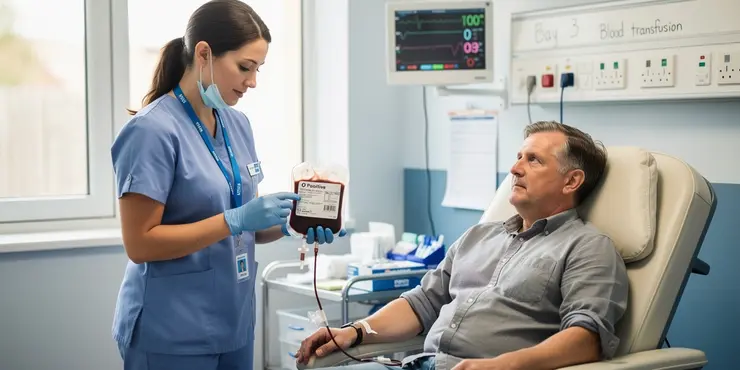
Blood Transfusion
Relevance: 94%
-
Is there an age limit for receiving blood transfusions?
Relevance: 93%
-

Are there risks associated with blood transfusions?
Relevance: 93%
-
Why might someone need a blood transfusion?
Relevance: 90%
-
How long does a blood transfusion take?
Relevance: 90%
-
What are some common reasons blood transfusions are needed?
Relevance: 90%
-
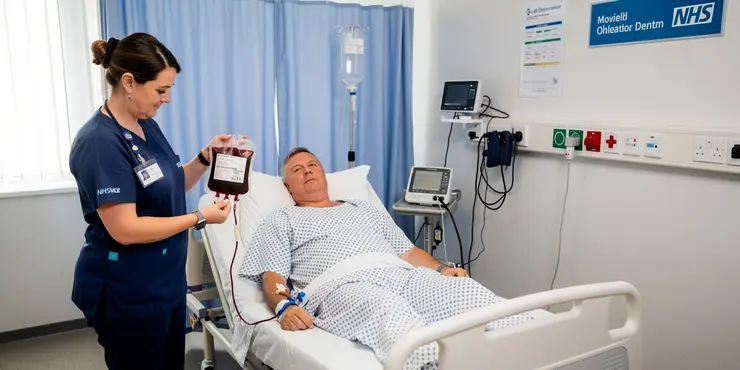
What types of blood products can be transfused?
Relevance: 89%
-
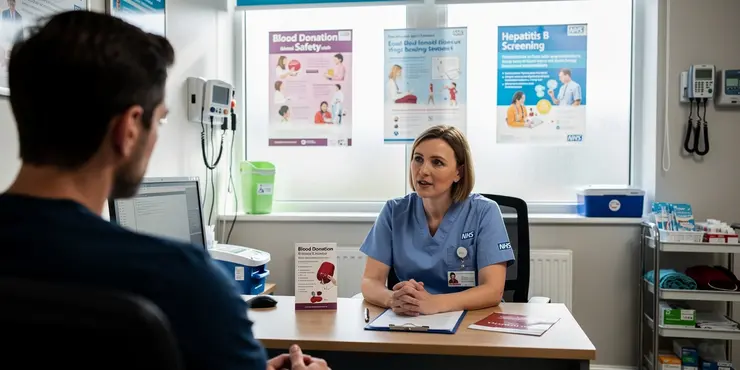
Is Hepatitis B a risk in blood transfusions?
Relevance: 88%
-
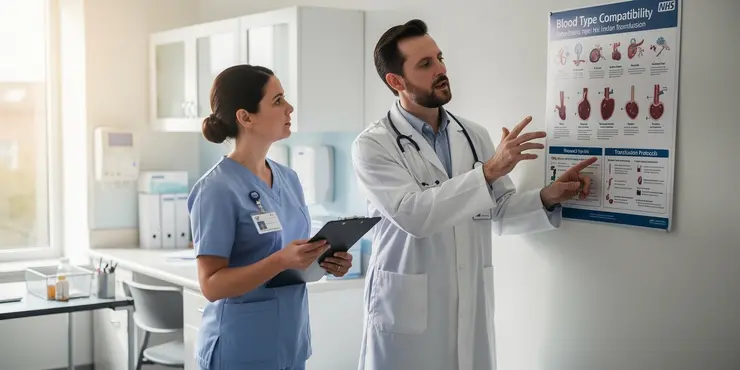
How do doctors determine how much blood is needed for a transfusion?
Relevance: 87%
-
Can certain medical conditions prevent receiving blood transfusions?
Relevance: 86%
-
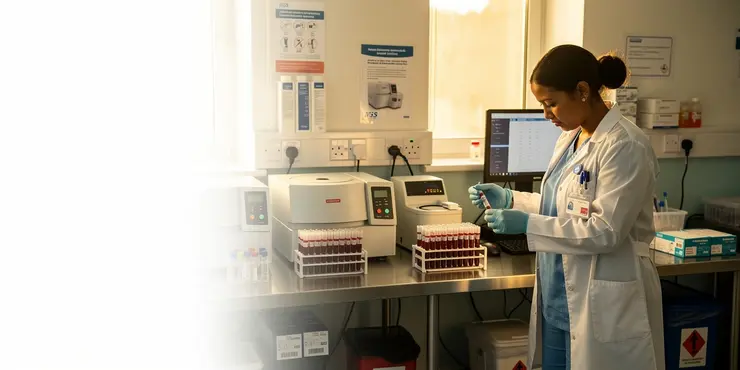
How do healthcare providers match blood for transfusions?
Relevance: 86%
-
Can someone have a reaction to a mismatched blood transfusion?
Relevance: 85%
-

What diseases can be spread by blood transfusions?
Relevance: 84%
-
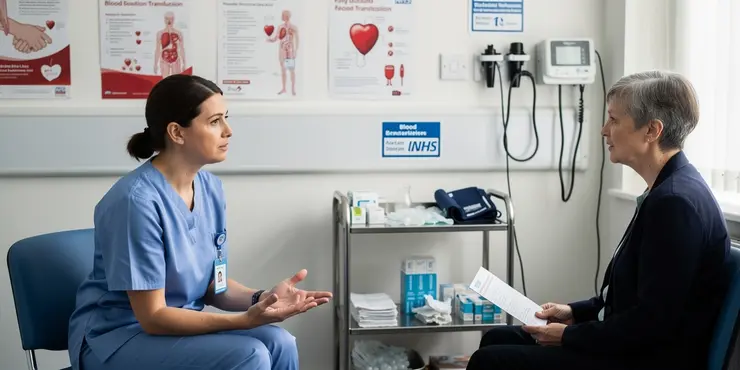
Is HTLV a risk in blood transfusions?
Relevance: 83%
-
Can people of any blood type receive a transfusion of any blood type?
Relevance: 82%
-
Can bacterial infections be transmitted through blood transfusion?
Relevance: 81%
-
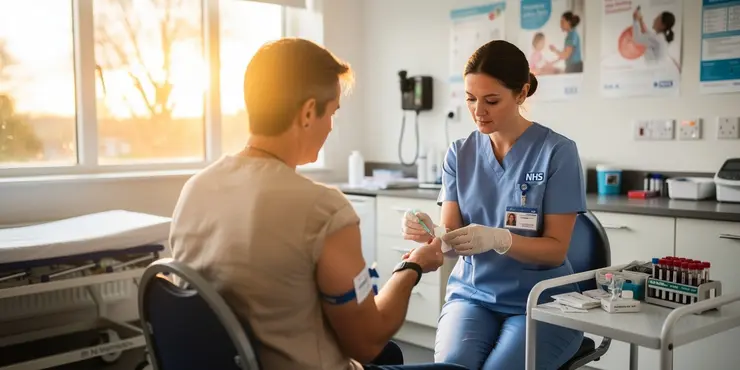
Is Chagas disease a concern with blood transfusions?
Relevance: 81%
-
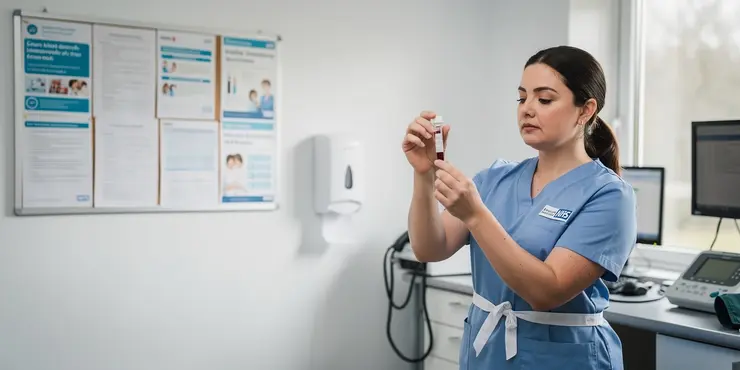
What is the most common disease transmitted by blood transfusion?
Relevance: 79%
-
Can HIV be transmitted through blood transfusions?
Relevance: 79%
-
Can Dengue fever be transmitted through blood transfusions?
Relevance: 78%
-
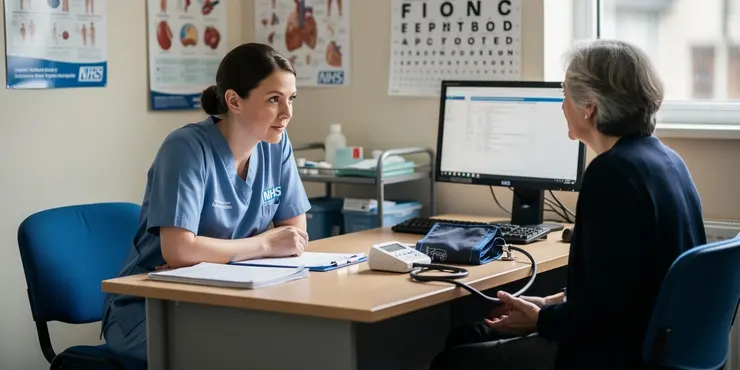
Can syphilis be transmitted via blood transfusion?
Relevance: 78%
-
Is Zika virus screened for in blood transfusions?
Relevance: 78%
-
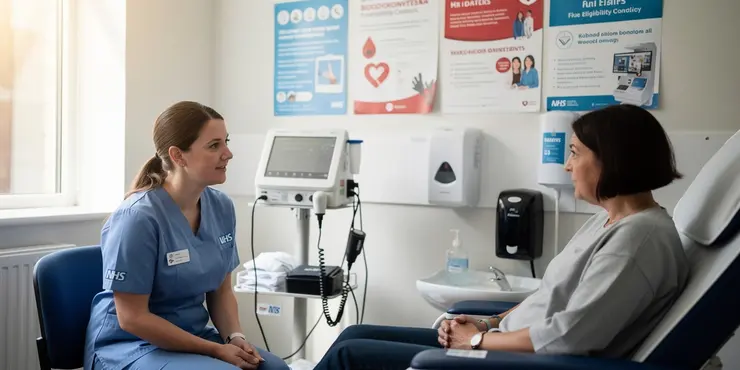
Can COVID-19 be transmitted through blood transfusions?
Relevance: 77%
-
What should a patient expect after a blood transfusion?
Relevance: 77%
-
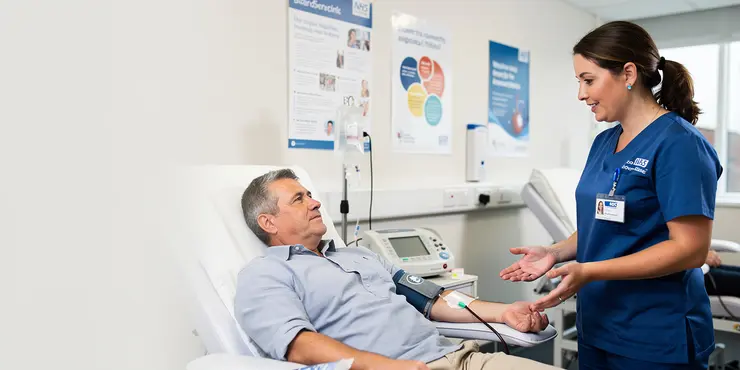
Are there any parasites that can be transmitted through blood transfusions?
Relevance: 76%
-
Is malaria still a concern for blood transfusion safety?
Relevance: 76%
-
Can you get any prion diseases from blood transfusion?
Relevance: 73%
-
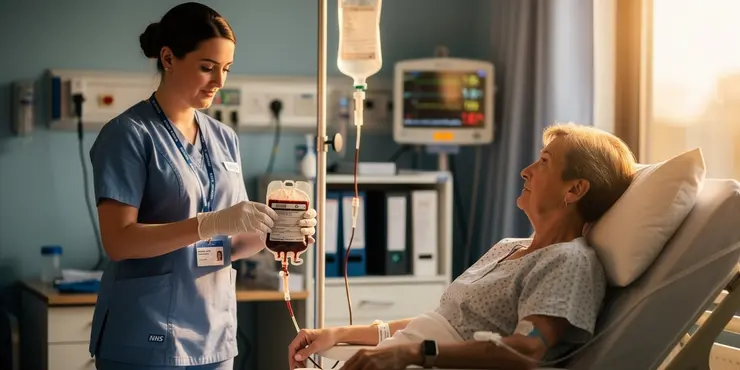
Can cytomegalovirus (CMV) be spread through transfusions?
Relevance: 70%
-
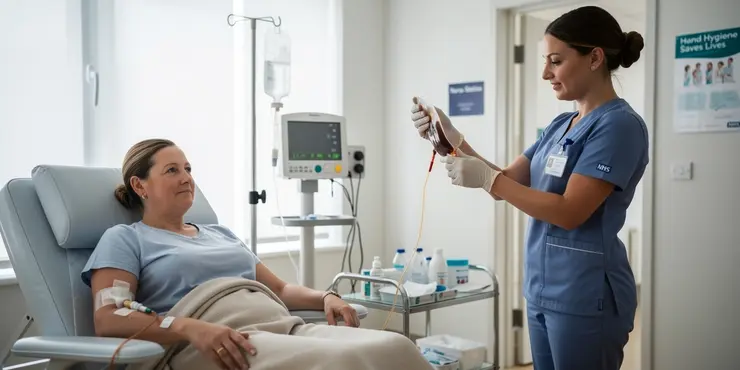
What is plasma, and why might it be transfused?
Relevance: 69%
-
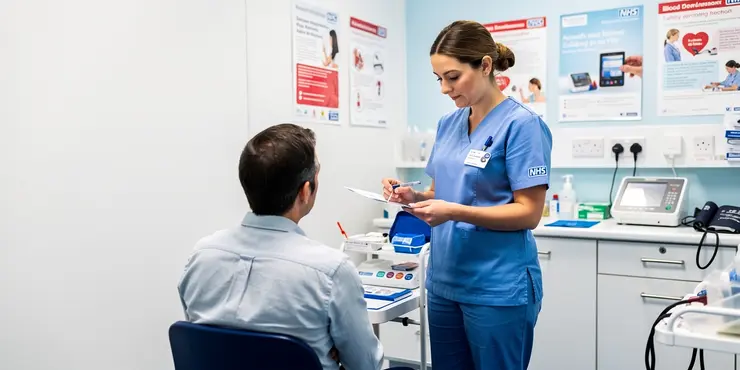
What measures are taken to prevent disease transmission in blood transfusions?
Relevance: 68%
-
Is blood used for transfusions safe?
Relevance: 68%
-
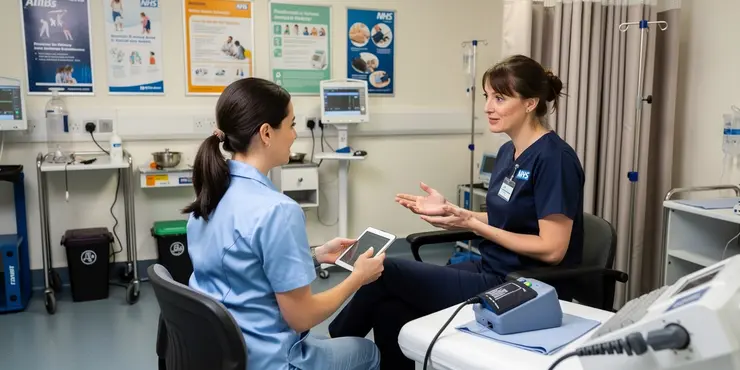
Are there global differences in screening for blood transfusions?
Relevance: 60%
-
What kind of follow-up care is needed after a blood transfusion?
Relevance: 59%
-
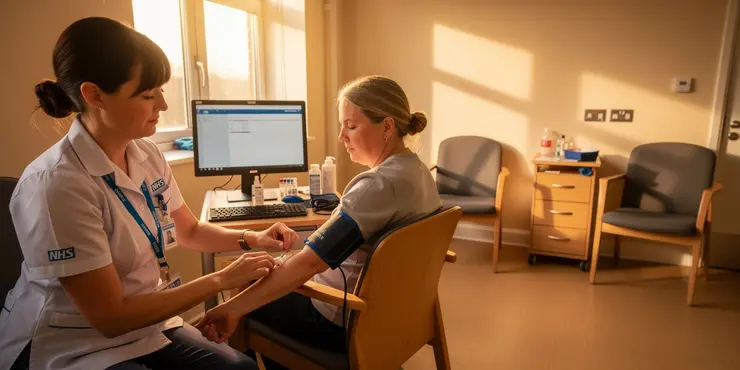
How is blood screened to prevent disease transmission?
Relevance: 58%
-
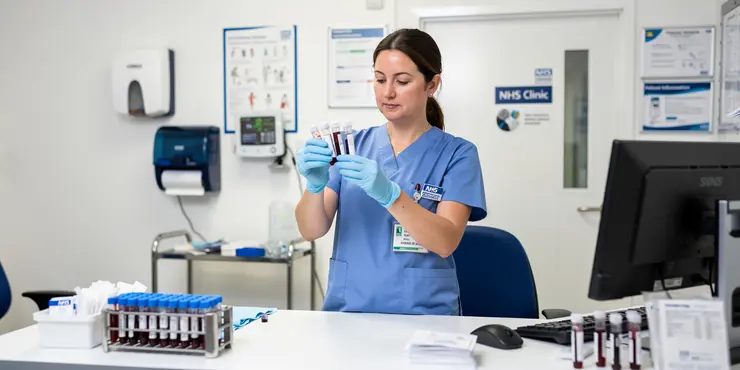
What other viruses are tested for in blood donations?
Relevance: 54%
-
Are new emerging pathogens a risk for blood safety?
Relevance: 48%
-
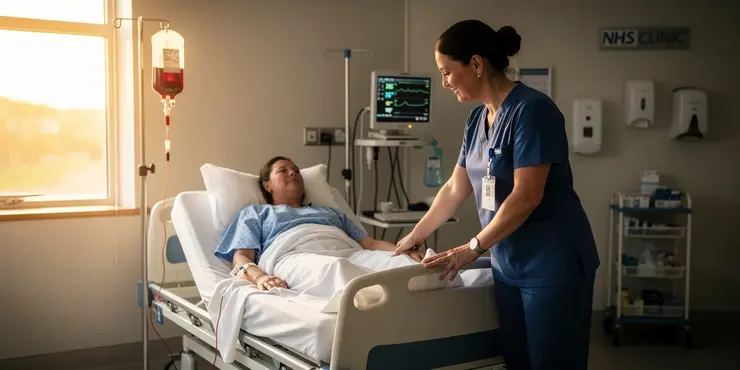
Can you donate blood specifically for a friend or family member?
Relevance: 45%
-
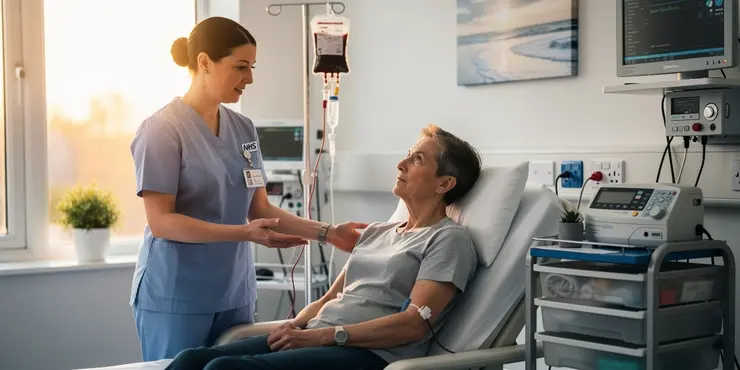
How is a blood transfusion performed?
Relevance: 44%
Introduction
Blood transfusions are a common medical procedure that can be critical for patients in various situations, such as during surgery, after an accident, or for those with certain medical conditions like anaemia. Understanding what to expect after a blood transfusion can help patients feel more comfortable and prepared for their recovery. This guide offers insights into what patients in the UK can typically expect following a blood transfusion.
Immediately After the Transfusion
Once the transfusion is complete, medical staff will monitor the patient closely for any immediate reactions. Most transfusions are completed without complications, but healthcare providers will look for signs of adverse reactions such as fever, chills, or hives. It is important for patients to communicate any unusual symptoms they experience during this period.
Common Post-Transfusion Symptoms
Patients may feel a little tired or drowsy following a blood transfusion. This is a normal reaction and is generally temporary. Most people can resume their normal activities after a brief rest period, but this will depend on the individual's overall health and the underlying reason for the transfusion.
Occasionally, some patients might experience mild side effects such as headache, nausea, or mild shortness of breath. It is crucial to inform a healthcare provider of any and all symptoms to rule out any potential complications.
Monitoring for Delayed Reactions
While most reactions occur immediately, some might develop a few days after the transfusion. Therefore, patients should be vigilant and report any delayed symptoms like rashes, fever, or jaundice. Health providers often provide guidelines on what to watch for and a contact number to call should any concerns arise.
Home Care and Recovery
Once discharged, patients should follow their doctor's instructions carefully. This typically includes staying hydrated and gradually returning to everyday activities. A follow-up appointment may be scheduled to assess recovery and ensure that haemoglobin levels are stabilised.
In some cases, especially where multiple transfusions are required, patients should discuss with their doctor what to expect in terms of frequency and any long-term considerations for their health.
Conclusion
Blood transfusions are a vital medical procedure that can save lives and significantly improve a patient’s health. By understanding the process and what to expect post-transfusion, patients can actively participate in their own care and recovery process. If you have any concerns or questions following a transfusion, always contact a healthcare professional for advice and support.
Introduction
Blood transfusions are a common medical treatment. They give new blood to people who need it. This happens during surgery, after accidents, or if someone has anaemia. Knowing what happens after a transfusion can help you feel calm and ready to get better. This guide explains what people in the UK can usually expect after a blood transfusion.
Right After the Transfusion
When the transfusion is finished, doctors and nurses will watch you closely. They check for any quick reactions. Most times, nothing bad happens. But they will look for things like fever, chills, or skin rash. Tell them if you feel anything strange.
Common Feelings After a Transfusion
You might feel a bit tired or sleepy after a transfusion. Don't worry, this is normal and goes away soon. Most people can go back to their usual activities after a short rest. But it depends on how healthy you are and why you needed the transfusion.
Sometimes, people feel a headache, feel sick, or have a little trouble breathing. Always tell your doctor about these feelings to make sure everything is okay.
Watching for Late Reactions
Most problems happen right away, but some can happen a few days later. Look out for things like skin rash, fever, or yellow skin. Doctors will tell you what to watch for and give you a phone number to call if you have any worries.
Taking Care of Yourself at Home
When you go home, follow the doctor's advice. Drink plenty of water and slowly get back to your normal life. You might have a follow-up meeting to see how you're doing and to check your blood levels.
If you need more transfusions, talk to your doctor about how often you will need them and how it may affect your health in the long run.
Conclusion
Blood transfusions are important. They save lives and help people feel better. By knowing what to expect, you can take part in your care and recovery. If you have any questions or worries after a transfusion, always ask your doctor for help.
Frequently Asked Questions
Useful Links
This website offers general information and is not a substitute for professional advice.
Always seek guidance from qualified professionals.
If you have any medical concerns or need urgent help, contact a healthcare professional or emergency services immediately.
Some of this content was generated with AI assistance. We’ve done our best to keep it accurate, helpful, and human-friendly.
- Ergsy carfully checks the information in the videos we provide here.
- Videos shown by Youtube after a video has completed, have NOT been reviewed by ERGSY.
- To view, click the arrow in centre of video.
- Most of the videos you find here will have subtitles and/or closed captions available.
- You may need to turn these on, and choose your preferred language.
- Go to the video you'd like to watch.
- If closed captions (CC) are available, settings will be visible on the bottom right of the video player.
- To turn on Captions, click settings .
- To turn off Captions, click settings again.
More Items From Ergsy search
-
What is a blood transfusion?
Relevance: 100%
-
Blood Product Transfusions
Relevance: 97%
-

Blood Transfusion
Relevance: 94%
-
Is there an age limit for receiving blood transfusions?
Relevance: 93%
-

Are there risks associated with blood transfusions?
Relevance: 93%
-
Why might someone need a blood transfusion?
Relevance: 90%
-
How long does a blood transfusion take?
Relevance: 90%
-
What are some common reasons blood transfusions are needed?
Relevance: 90%
-

What types of blood products can be transfused?
Relevance: 89%
-

Is Hepatitis B a risk in blood transfusions?
Relevance: 88%
-

How do doctors determine how much blood is needed for a transfusion?
Relevance: 87%
-
Can certain medical conditions prevent receiving blood transfusions?
Relevance: 86%
-

How do healthcare providers match blood for transfusions?
Relevance: 86%
-
Can someone have a reaction to a mismatched blood transfusion?
Relevance: 85%
-

What diseases can be spread by blood transfusions?
Relevance: 84%
-

Is HTLV a risk in blood transfusions?
Relevance: 83%
-
Can people of any blood type receive a transfusion of any blood type?
Relevance: 82%
-
Can bacterial infections be transmitted through blood transfusion?
Relevance: 81%
-

Is Chagas disease a concern with blood transfusions?
Relevance: 81%
-

What is the most common disease transmitted by blood transfusion?
Relevance: 79%
-
Can HIV be transmitted through blood transfusions?
Relevance: 79%
-
Can Dengue fever be transmitted through blood transfusions?
Relevance: 78%
-

Can syphilis be transmitted via blood transfusion?
Relevance: 78%
-
Is Zika virus screened for in blood transfusions?
Relevance: 78%
-

Can COVID-19 be transmitted through blood transfusions?
Relevance: 77%
-
What should a patient expect after a blood transfusion?
Relevance: 77%
-

Are there any parasites that can be transmitted through blood transfusions?
Relevance: 76%
-
Is malaria still a concern for blood transfusion safety?
Relevance: 76%
-
Can you get any prion diseases from blood transfusion?
Relevance: 73%
-

Can cytomegalovirus (CMV) be spread through transfusions?
Relevance: 70%
-

What is plasma, and why might it be transfused?
Relevance: 69%
-

What measures are taken to prevent disease transmission in blood transfusions?
Relevance: 68%
-
Is blood used for transfusions safe?
Relevance: 68%
-

Are there global differences in screening for blood transfusions?
Relevance: 60%
-
What kind of follow-up care is needed after a blood transfusion?
Relevance: 59%
-

How is blood screened to prevent disease transmission?
Relevance: 58%
-

What other viruses are tested for in blood donations?
Relevance: 54%
-
Are new emerging pathogens a risk for blood safety?
Relevance: 48%
-

Can you donate blood specifically for a friend or family member?
Relevance: 45%
-

How is a blood transfusion performed?
Relevance: 44%


